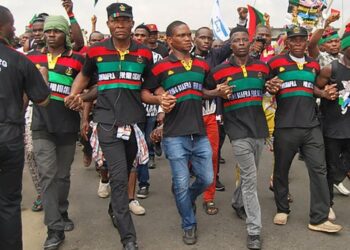The Lagos Division of the Court of Appeal has reinstated the Economic and Financial Crimes Commission (EFCC)’s interim forfeiture order against 14 properties linked to former Kogi State Governor Yahaya Bello.
Delivering the ruling virtually, Justice Yargata Nimpar led a three-member panel, joined by Justices Danlami Senchi and Paul Bassi. The court held that the Federal High Court had wrongly dismissed the EFCC’s application based on Section 308 of the 1999 Constitution.
According to Justice Nimpar, constitutional immunity protects individuals in office but not properties linked to possible criminal activity. She stated that the trial court should have determined whether the assets deserved final forfeiture, rather than ending the matter prematurely.
The EFCC earlier obtained the interim order from Justice Nicholas Oweibo of the Federal High Court in Lagos. The agency argued that Bello used proceeds of unlawful activities to acquire luxury properties in Lagos, Abuja, and Dubai.
Following standard legal procedures, the commission published notices in two national newspapers. This action invited interested parties to explain why the assets should not be permanently seized.
Yahaya Bello Challenges the Order
Bello’s legal team argued that the assets in question were purchased before he assumed office, ruling out the possibility of using public funds. They also cited a Kogi State High Court order barring the EFCC from probing the state’s finances.
Additionally, the lawyers questioned the Lagos court’s jurisdiction. They claimed Bello resides in Lokoja and the properties lie outside Lagos State.
EFCC Defends Its Legal Mandate
Lead counsel for the EFCC, Rotimi Oyedepo (SAN), supported by Bilkisu Buhari-Bala and Hanatu Kofanaisa, urged the appellate court to dismiss the objections. He emphasized that no court had legally stopped the EFCC from investigating financial crimes.
Oyedepo noted that the assets, including an apartment in Burj Khalifa, Dubai, were likely acquired through illicit means. The EFCC also sought the forfeiture of an additional ₦400 million related to the ongoing probe.
The Court of Appeal rejected Bello’s preliminary objections and clarified that Section 308 does not apply to asset preservation matters. The court instructed the EFCC to proceed with the final forfeiture hearing, reinforcing the agency’s authority to pursue economic crime investigations.












